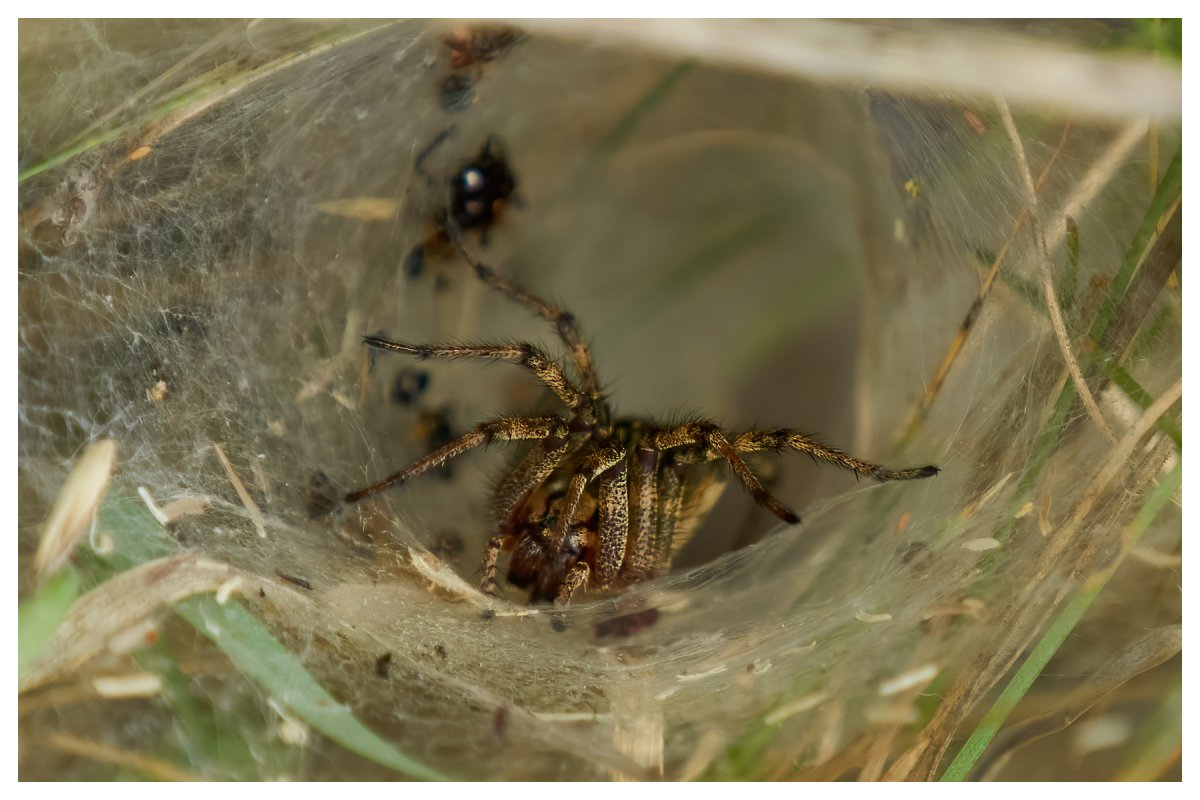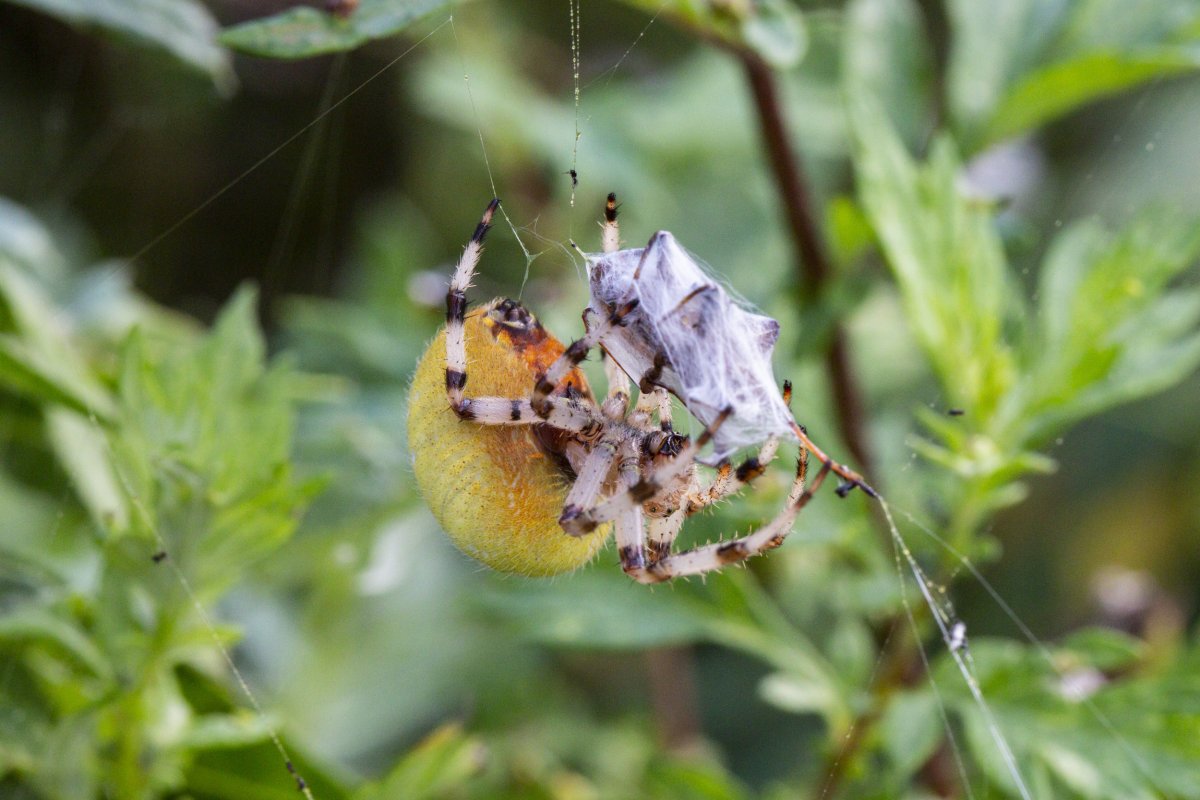Scientists have discovered that female spiders that usually eat their mates after sex choose to act as if they're dead so that males will trust them enough to copulate.
According to a paper published in the journal Current Zoology in March, the females of some species of funnel-weaving spider will pretend to be dead to attract males, despite the male seemingly knowing full well that she's faking it.
Funnel-weaving spiders are a large group of spider species that weave their silky webs into funnel-like shapes. They are usually fairly small, with most species measuring less than an inch across, although the largest species can grow to between 3 and 4 inches. They are found around the world, but only the Australian species are venomous.
Like many other spiders and some praying mantises, funnel-weaving species often perform sexual cannibalism, eating their mates during or immediately after mating. Naturally, this isn't ideal for the male, as he is limited to only producing offspring with this one and only female before his life is cut short.

In some species, this has led to the development of an act known as sexual catalepsy, where the females pretend to be dead so that the males can mate with them. The researchers wanted to know if female spiders were choosing to act that way, or if they were being triggered by the males releasing some form of chemical control.
In the paper, the authors describe how they used spiders from the species Aterigena aculeata in several experiments, observing the females engaging in sexual catalepsy naturally during mating, playing dead outside of mating due to being shaken in a tube (thanatosis), and being chemically induced to sleep using anesthesia.
The spiders were then frozen so that the researchers could look for chemicals in the spiders' bodies that may be triggering their behaviors. If the chemicals in the faking female were more similar to those in the anesthetized females, it would indicate that the males were releasing a chemical that made the females cataleptic.

However, they found that the chemicals in the female spiders were similar to those when she was playing dead out of fear, and not similar to when she was under anesthetic. This indicates that the females are choosing to play dead and that the male is not triggering the behavior using a chemical signal.
According to the authors, this implies that it's a form of mate choosing, faking death for the males they want to reproduce with the most.
"Mating occurs only when the female enters sexual catalepsy, so if she doesn't behave that way, then mating doesn't proceed," Mark Elgar, an evolutionary biologist at the University of Melbourne in Australia and co-author of the study, told LiveScience.
The researchers also found that immediately after mating, the female appears to wake up and move away, showing that they can control how long they are faking dead for, and also that the males are aware that they're not really dead.
While this faking-death behavior is also seen in a number of other species of funnel-weaving spiders, the researchers can't be sure if the same mechanism is in play.
"It isn't clear yet whether it has consistently evolved as a female mechanism of mate choice or a male mechanism of protection against sexual cannibalism," Elgar said.
Other spiders have found different ways around getting eaten by hungry females. The males of wolf spider species have previously been found to play dead instead of the females, while others catapult themselves to safety immediately after mating.
Do you have an animal or nature story to share with Newsweek? Do you have a question about sexual cannibalism? Let us know via science@newsweek.com.
Uncommon Knowledge
Newsweek is committed to challenging conventional wisdom and finding connections in the search for common ground.
Newsweek is committed to challenging conventional wisdom and finding connections in the search for common ground.
About the writer
Jess Thomson is a Newsweek Science Reporter based in London UK. Her focus is reporting on science, technology and healthcare. ... Read more
To read how Newsweek uses AI as a newsroom tool, Click here.








